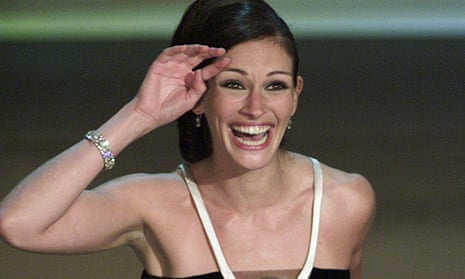The tickertape may or may not include the word “God”, but it will certainly include the words “Meryl Streep”, as it was revealed that the Academy of Motion Picture Arts and Sciences, the body who organise the Oscars, are taking steps to limit the time required for winners’ speeches and the inevitable clashes with the orchestra that result. The traditional list of thankyous will be replaced by a preprepared scrolling list of names, in which – as was noted in 2014 – the Iron Lady star has figured even more heavily than the Judeo-Christian deity.
At the annual Oscar nominees lunch, the producers of the Academy awards telecast announced that nominees will be asked to submit their full list of “thank you” recipients in advance of the ceremony for the first time this year. The move is designed to allow producers to scroll names beneath the screen so that Oscar winners can use their allotted 45 second speeches for other purposes, and is designed to avoid prize recipients being unceremoniously “played off” by the orchestra at inopportune moments.
The initiative was specifically inspired by the unedifying spectacle of the 2015 joint winner of the best documentary short award, Dana Perry, being interrupted by music just as she had begun to discuss the suicide of her son and its impact on her as a film-maker.
Battling the orchestra has become one of Oscar night’s regular traditions, with winners’ desperate attempts to reach the end of their speech before reaching the cut-off point a source of increasing tension. Status helps, as one of the better known defeaters of “the man with the stick” established: Julia Roberts, having won the best actress award in 2001 for Erin Brockovich, effectively silenced the music by telling the conductor: “Sir, you’re doing a great job, but you’re so quick with that stick, so why don’t you sit, because I may never be here again.” She gained over three minutes as a result.
In 1996, Cuba Gooding Jr effectively turned the music into a backing track as he repeatedly shouted out “I love you” after winning the best supporting actor award for Jerry Maguire in 1997, while Marketa Irglova, co-winner of the best song Oscar for Falling Slowly at the 2008 ceremony, was invited back on by host Jon Stewart at the end of proceedings after being ignominiously cut off before she could utter a word.
In 2015, Polish director Pawel Pawlikowski managed to silence the orchestra during his speech after winning the best foreign film Oscar for Ida, as he paid tribute to his Polish crew (“who are totally drunk now”), as well as his late wife and parents. However, the orchestra returned after a short pause, with a giant blast of kettledrums that finally ended his shout-out.
However, all these pale into comparison compared to Greer Garson, who reportedly spoke for well over five minutes after winning the best actress Oscar in 1943 for Mrs Miniver.
This year’s Oscars takes place at the Dolby Theatre in Los Angeles on 28 February, with Chris Rock set to host. Alejandro G Iñárritu’s grim western The Revenant is the bookmakers’ favourite in the best director and best cinematography categories, with star Leonardo DiCaprio also widely expected to win best actor for his turn as a vengeful 19th century frontiersman. Catholic abuse drama Spotlight remains the favourite to take best film in a tight race with Iñárritu’s movie and financial crisis comedy drama The Big Short.

Comments (…)
Sign in or create your Guardian account to join the discussion